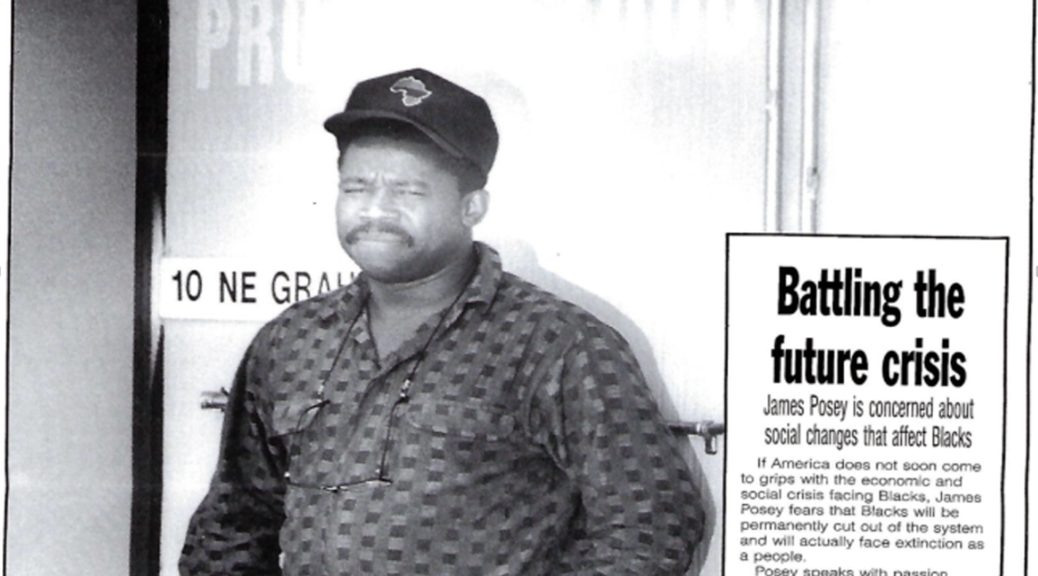
My name is Rosa Colquitt. I am a member of NAACP Portland Branch 1120. After looking forward to the Freedom Fund Dinner for a number of months, I have concluded that I cannot, in good conscience, and a commitment to my personal values and ethics, support this Branch 1120 fundraising activity. I will clarify my reasons as honestly, objectively and as succinctly as I can. They are specifically: (1) the overt continuation of bylaw violations by the branch president, and (2) the lack of transparency with branch unit finances, even to a member of the finance committee, leading to a climate of hostility and suppression of voices that are not in lock-step agreement with President Mondaine.
(1) On May 14, 2019, the Executive Committee held its May monthly exec meeting during the absence of Chapter President E.D. Mondaine. In direct violation of the Constitution of the NAACP and Bylaws for Units, Article VII, 2, Vice Chair, “The Vice-Chair . . . shall assume and perform all of the duties and functions of the Chair in the latter’s absence, disability or unavailability as defined by the Board of Directors,” the president designated the treasurer, coincidentally a male, to preside over the executive meeting. At that time, neither the 1st, 2nd, or 3rd vice chair, all Black females, were given the opportunity to preside over the executive meeting. The issue was openly raised at the opening of the meeting on May 14, 2019, as to why the vice chairs were overlooked and the treasurer determined he would turn the gavel over to the 2nd vice chair in the absence of the 1st vice chair.
(2) On June 11, 2019, the Executive Committee held its June monthly exec meeting during the absence of President Mondaine. Again, in direct violation of the Constitution of the NAACP and Bylaws for Units, Article VII, 2, Vice Chair, the president designated the secretary, coincidentally a male, to preside over the executive meeting. At that time, neither the 1st, 2nd, or 3rd vice chair, all Black females, were not given the opportunity to preside over the executive meeting. Their duly described duties were again openly disrespected by the president flaunting his perceived authority to dismiss the bylaws.
(3) On July 8, 2019, the duly elected 1st vice chair officially tendered her resignation, by email, to the members of the Executive Committee.
(4) On July 9, 2019, the Executive Committee held its May monthly exec meeting with President Mondaine presiding over the same. The atmosphere was so thick you could cut it with a knife. Not only were there hard feelings over the open disrespect I felt as a 3rd vice chair of the Exec Board, but E.D. once again appointed a new male committee chair, whom other board members did not know, and had not been given an opportunity as agreed upon to review his resume before giving board approval. After sitting through a bruising 10-minute rant by E.D. concerning uncooperative Board members, folks not volunteering to do this and that, all the great work he’s doing as president and related accolades, and more, I exited the meeting at 6:10 p.m., ten minutes after the scheduled adjournment time. I verbally stated “I did not appreciate being talked down to like a 10-year old, and that I found his behavior hostile and oppressive.” The president’s response: “Bye Rosa Colquitt.”
(5) On July 16, 2019, I tendered my official resignation as appointed 3rd Vice Chair, via email to President Mondaine, copied to the State Area Conference President Gerald Hankerson and Secretary Darlene Andrus.
(6) On many stressful occasions, more than I can enumerate, I have raised considerable questions as both a branch member and finance committee member about the following concerns only to be met with open hostility: (a) the lack of a full and open discussion, with both the 1120 membership and Portland’s Black community at large, concerning the decision to hold the Freedom Fund Gala at the DoubleTree Hilton — particularly in the face of the December 2018 racial profiling of Jermaine Massey; Branch 1120 belongs to the community, NOT the president and executive committee; (b) the lack of a review of the contract with the Double Tree Hilton for the Freedom Fund Gala; (c) the lack of a review of the contract with the Lloyd Center Mall for the office space; and (d) the EGREGIOUS spending of Chapter funds for the purchase of first class airline tickets for travel to the National NAACP Convention in Detroit by the president and secretary. There is little or no TRANSPARENCY in Branch 1120 financial expenditures. Although the bylaws may not require dissemination of this financial info, there should be no reason that interested members cannot make reasonable inquiry. (If anyone is interested in a lengthy series of emails pertaining to item (d) and concerns about 11 unconfirmed July credit card debits, feel free to contact me.)
(7) On August 24, 2019, the seeming need by the president, and possibly others on the executive committee to suppress “perceived” dissenting voices, took a new low. In direct violation of the Constitution of the NAACP and Bylaws for Units, Article V, 6., Meetings, says special meetings of the Exec. Comm. “may be called by the President, Secretary or by two members of the Committee on two days written notice.” An August 24 meeting was called on just a few minutes’ notice to remove me, in my absence with no knowledge, from the Finance Committee.
For these reasons and more than discussed herein, I cannot support a financial fundraiser by Branch 1120. It is highly doubtful that the disclosure of expenditures and receipts will be fully disclosed to the membership at any time. Moreover, those members who raise questions will be faced with hostility and dismissal. May I remind ALL who are reading this email that I am actually talking about the NAACP, the oldest civil rights organization in the history of the United States. Please remember the mission of the NAACP.
~Dr. Rosa Colquitt
On Tue, Sep 10, 2019 at 9:33 AM PDX NAACP <portlandnaacp@gmail.com> wrote:
Dear NAACP Member/Supporter
We are pleased and honored to invite you and a guest to our 2019 Freedom Fund Gala, taking place at the DoubleTree by Hilton Hotel Portland on Saturday, October 5, 2019. The evening will begin at 6 p.m. with a private cocktail hour for our VIP guests, immediately followed by the Gala. Other elements include mingling with legendary Gospel great Zella Jackson Price, of Say Amen Somebody, live entertainment, and, of course, a delicious dinner. The dress for the evening is semi-formal.
It’s no secret that Portland has blazed many amazing trails, but the racism in Oregon’s history remains a thorn in the stem of the diverse city we have become. The only way to accomplish the call to action stated in our event’s theme, “Removing the Thorns of Racism in the City of Roses,” is by making a commitment to understand our communities, and to aggressively challenge racist ideologies, both covert and overt.
When we actively work together to face racism, acknowledge it, and abolish such instances, we will be laying a formidable foundation for future generations of Portlanders.
With that, we genuinely hope that you would honor us with your presence. Should you accept our invitation, we kindly ask you to visit www.pdxnaacp.org/freedom-fund to purchase your Sponsorship and or VIP seat at the Table. For any queries or questions, please contact Antjuan Tolbert, secretary@pdxnaacp.org
Looking forward to your acceptance and to enjoying an impactful gala with you.
Sincerely,
Antjuan Tolbert
Secretary, Branch 1120
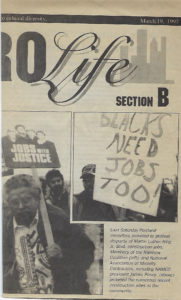
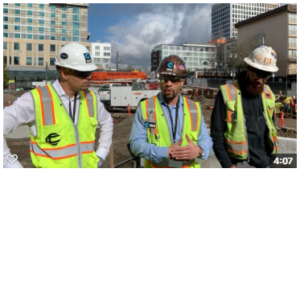

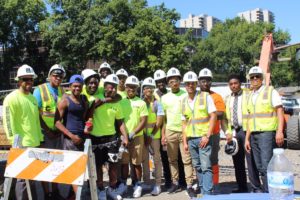
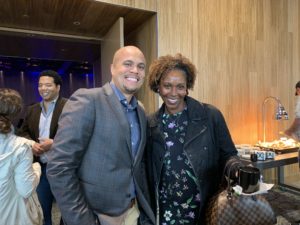
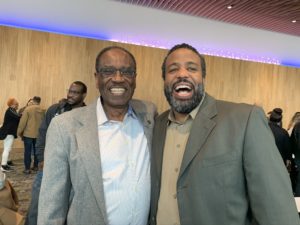

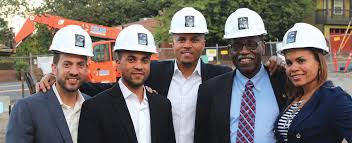
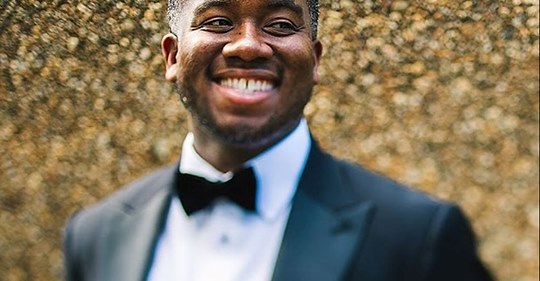







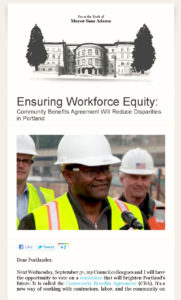
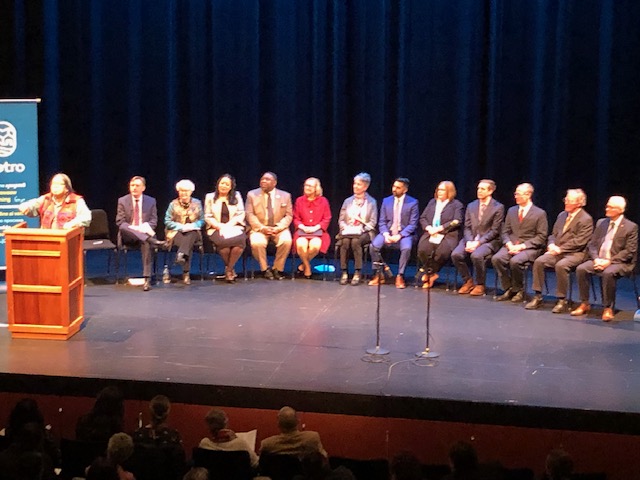
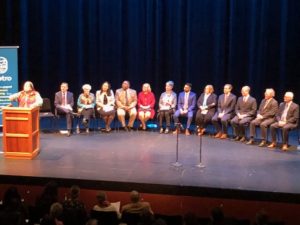
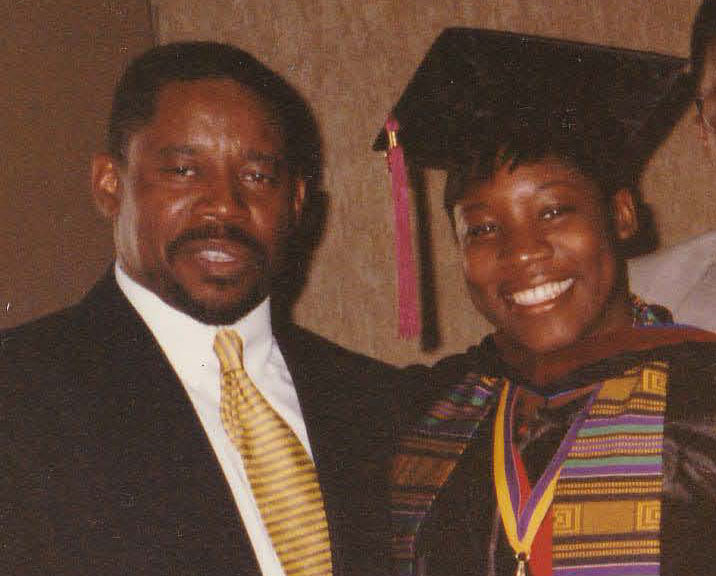
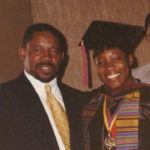 The numbers are still shockingly bad in 2019
The numbers are still shockingly bad in 2019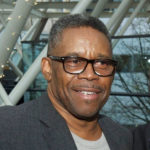 I for one am not surprised by the content of a November 15 OP-ED article in the Daily Journal of Commerce in which Mike Salsgiver, the executive director of Associated General Contractors (AGC) celebrated the silent majority’s votes in the national election.
I for one am not surprised by the content of a November 15 OP-ED article in the Daily Journal of Commerce in which Mike Salsgiver, the executive director of Associated General Contractors (AGC) celebrated the silent majority’s votes in the national election.